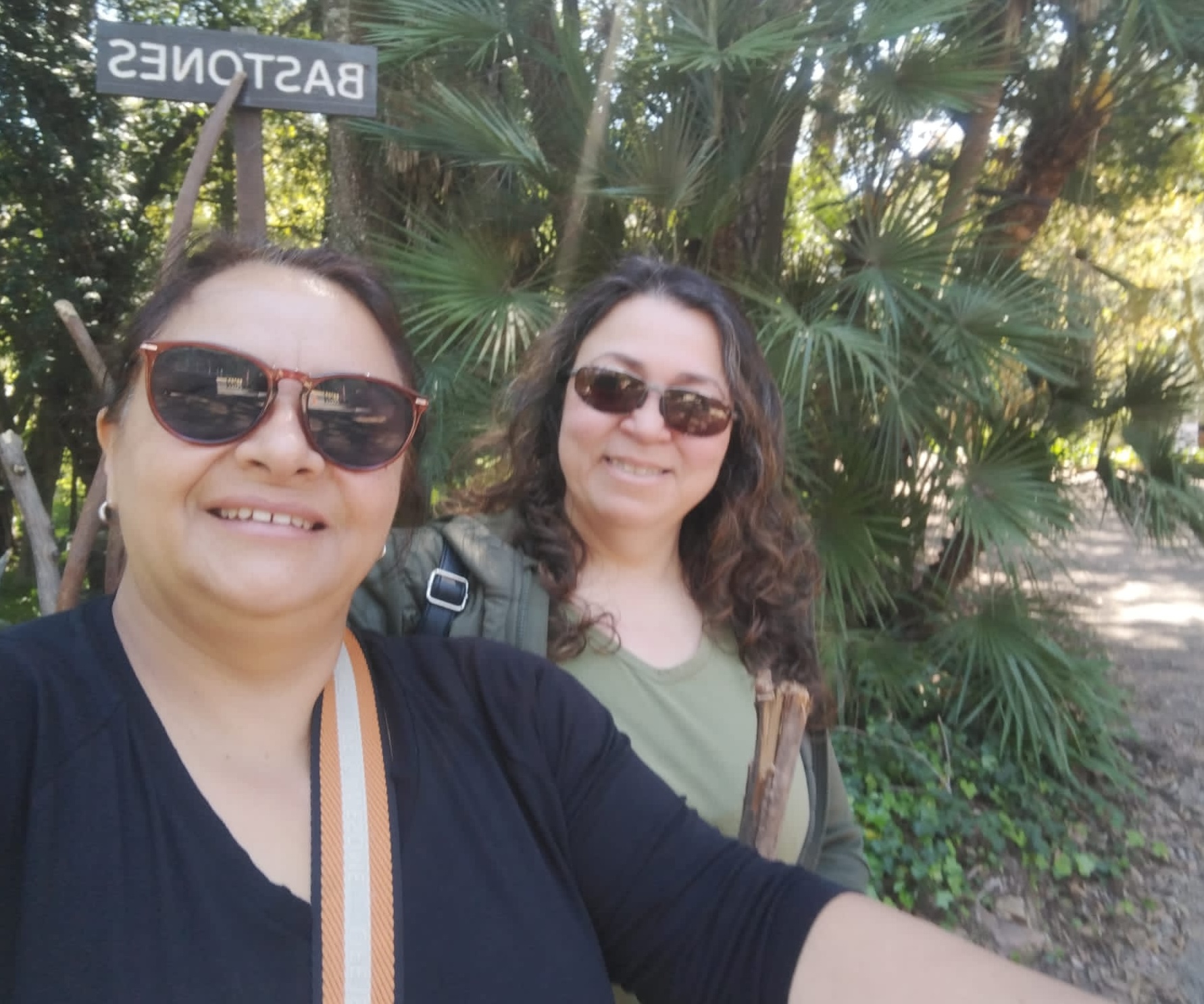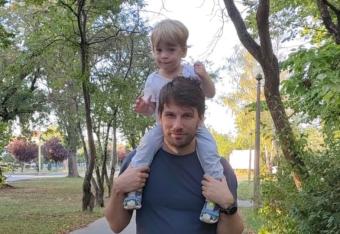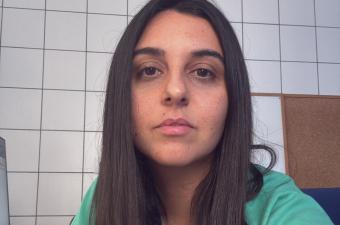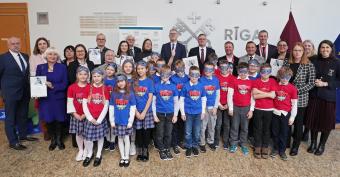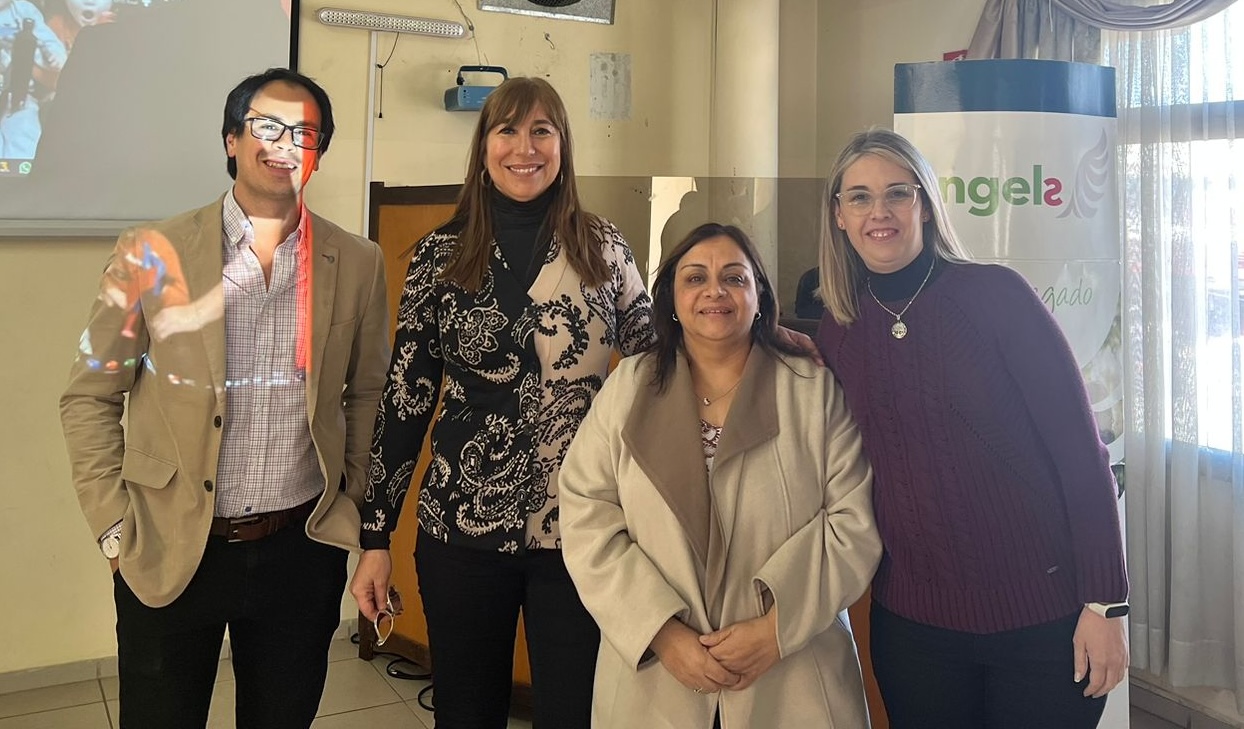
CUDAM is a small hospital in Montevideo, Uruguay, and the clinical home of distinguished neurologist Dr Claudia Camejo who along with Dr Ignacio Amorin was given the task of developing a national stroke protocol by the Uruguay Ministry of Public Health. After Angels started working with CUDAM early in 2022, we also got to know Veronica Motta, a young nurse who is building her legacy by working hard to create a stroke unit at the hospital.
But this is the story of Raquel Gonzalez, a nurse at CUDAM for 31 years, who on 11 June 2022 was wheeled through the doors of the emergency room where she had been working for 25 years.
It was a Saturday and Raquel had just come on duty when she popped out to get something from a nearby store. As she crossed the street she felt a tingling sensation in her right leg, and when she reached the sidewalk she struggled to raise her foot onto the kerb. After walking a few more steps, she felt dizzy and steadied herself against a tree. She was quite certain what was happening to her had some neurological cause, but it hadn’t yet occurred to her that it might be a stroke.
Moments later, at around 7.05 pm, a taxi pulled up beside her and a nurse from a nearby hospital got out to ask Raquel if she was okay. As she clearly wasn’t, the taxi driver offered to take her to a hospital in the neighbourhood. But it by now having dawned on her that she might be having a stroke, Raquel asked to be taken to CUDAM instead. They had a stroke protocol, she managed to explain.
When Raquel arrived at the hospital just eight minutes had elapsed since she first became aware of her symptoms, and she was no longer able to speak. When her colleague, Dr Erik Cristaldo, performed an NIHSS evaluation, Raquel responded to his questions by gesturing with her left hand. Struggling for composure she continued to try and communicate with her colleagues until her daughter arrived and upon seeing her mom’s distress began to cry. Then Raquel’s own tears began to flow. She says, “I went into the CT scanner crying and surrendered to God, I was in his hands.”
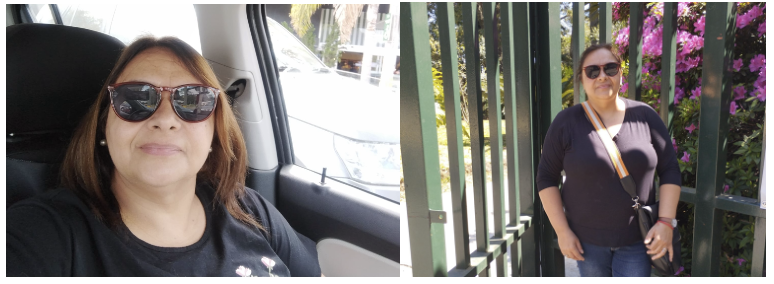
In the preceding months, Angels consultant Florentina Racchi had been helping CUDAM optimise their stroke pathway. Now, after imaging confirmed Raquel was having an ischaemic stroke, all the pieces fell into place. Treatment with thrombolysis commenced at 8.20 pm. The onset-to-treatment time had been one hour and 15 minutes.
Raquel’s symptoms began to recede even as the thrombolytic drug entered her bloodstream and when she was discharged five days later, she was walking and talking almost normally. The stroke had nevertheless taken a toll. She says, “It had all happened so fast that I couldn’t process everything emotionally. When I got home, I felt overwhelmed by the noise and social communication. I could only tolerate the company of at most two or three people at one time.”
She went through all the stages a stroke patient does, Raquel says. “I’d go from being in a good mood one moment and in the next moment I’d feel like crying. And I felt scared. One day while walking along 18 de Julio Avenue I lost my balance and thought, ‘It can’t be happening to me again!’ But it was just the heel of my boot that had come off.”
The stroke had left its imprint on her fine motor skills and memory. “It took me a while to realise what the limitations were,” she says. “When I was about to make some Milanesa [breaded veal] seven days after the stroke, I found I couldn’t beat the eggs. Within 10 days I was doing some work on the computer for a project on gender-based violence but found I had forgotten how to put together a structured project. And I had trouble remembering the words for the most ordinary items, like ‘cup’.”
Stroke affects families, and for the lucky ones stroke recovery is a family project. Raquel’s student children aged 23 and 19 helped carry the emotional burden and managed the household. Her ex-husband brought over meals and a cousin moved closer to ensure she was safe.
Raquel enrolled in the CUDAM rehabilitation centre and worked on her balance with the help of a physiotherapist.
“Relearning things was a big challenge,” she says. Relatives’ birthdays slipped her mind and working with Excel spreadsheets was a challenge. In order to cross her legs during functional gymnastics she had to tell her brain what to do first. But, she says, “I’m happy to be alive, which is the most important thing.”
“There are many factors that need to be thought about and restructured,” Raquel says of the stroke survivor’s journey. “Resources are also decisive. I was able to afford some particular expenses, but apart from the high costs there are emotional, physical and clinical costs for the patient, society and the health system.”
Raquel is now back at work where she focuses on a health programme for gender-based violence and attends to patients two days a week. It’s an assignment she was given when she started a postgraduate degree in health services management in 2016, but she no longer works the long hours she did before her stroke. She enjoys her work but allows herself to do other things too.
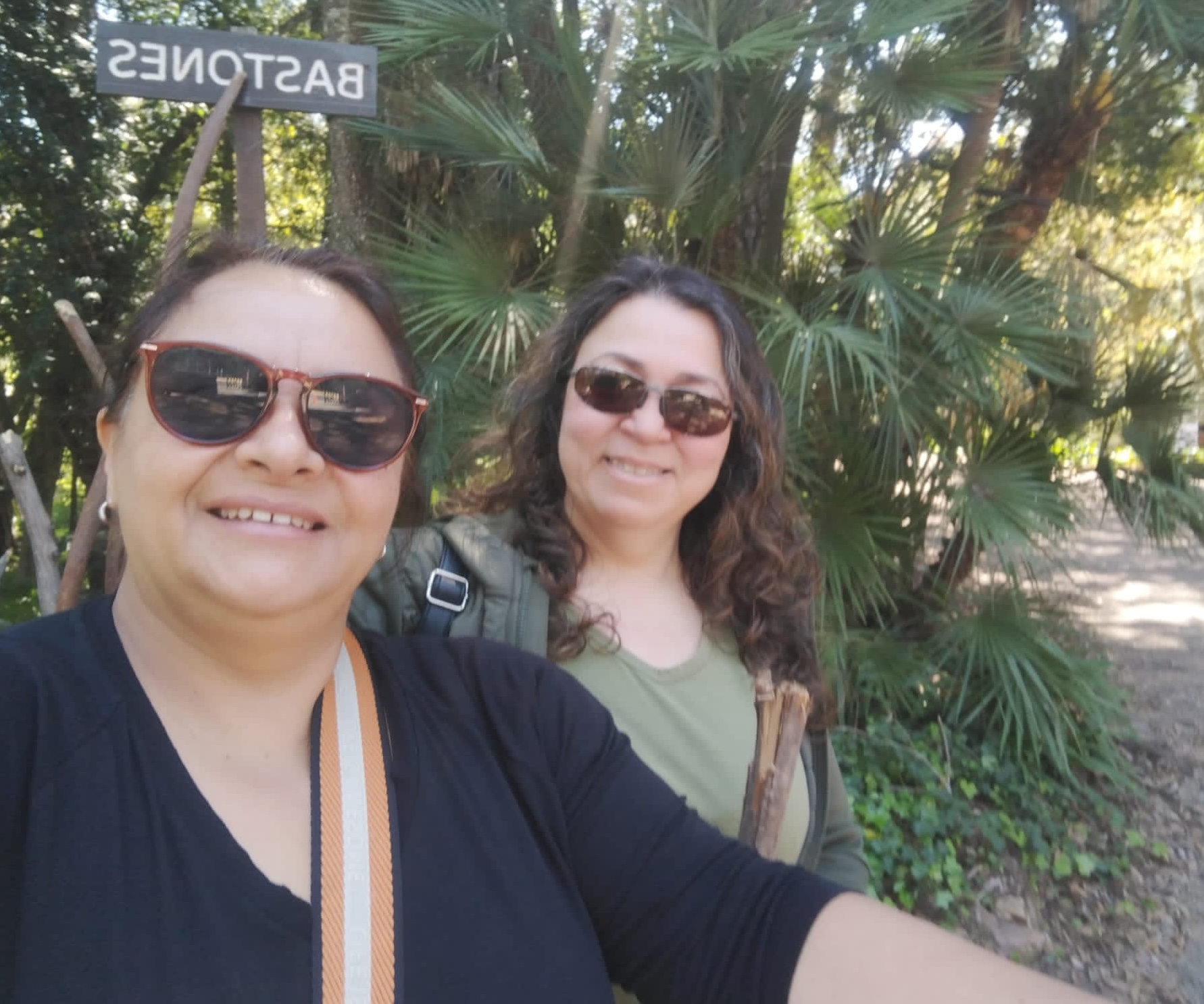
Since her stroke, Raquel has dedicated herself to supporting stroke prevention activities and collaborating with her colleague Veronica Motta in the CUDAM stroke programme that saved her life.
“Having the hospital close by was key,” she says. “Dr Claudia Camejo is a magnificent human being apart from being an excellent professional. I knew her personally before my episode and she behaved wonderfully with me. Everything was optimal, the commitment to applying the protocol was fundamental, we had the medication . . . It was all very successful.”
As a stroke survior, sharing her experience with other patients and professionals is high on her list of priorities. She says, “I highlight sensitivity and empathy especially in cases where patients cannot respond. Even if you cannot speak, you are aware, you are perceiving everything, a thousand things go through your head, and it is very important to be told, at every step, what is going to happen to calm the anxiety.”
Raquel describes her stroke as a “learning process” that among other things taught her to be calmer and less driven. She’s identified stress as a trigger for her stroke, along with a medical history of risk factors – overweight, insulin-resistance, and hypertension. “About nine days before the event I started with pharyngitis and when I had the stroke I tested positive for Covid. I think it was the sum of multiple factors.”
Not far from Montevideo is the Arboretum Lussich, a sprawling, eucalyptus-scented oceanside forest reserve that offers excellent hiking. This is where Raquel has tested her regained strength and found validation of a new outlook on life. She says, “Today when I go on vacation, I continue to do things to challenge myself, climb over some rocks to the beach. I have been up and down the Lussich Trail and felt the same energy and physical capacity as before. But I am more cautious and have changed a few things. I am going through life more slowly because as I always say, I’ve already run over something.”
